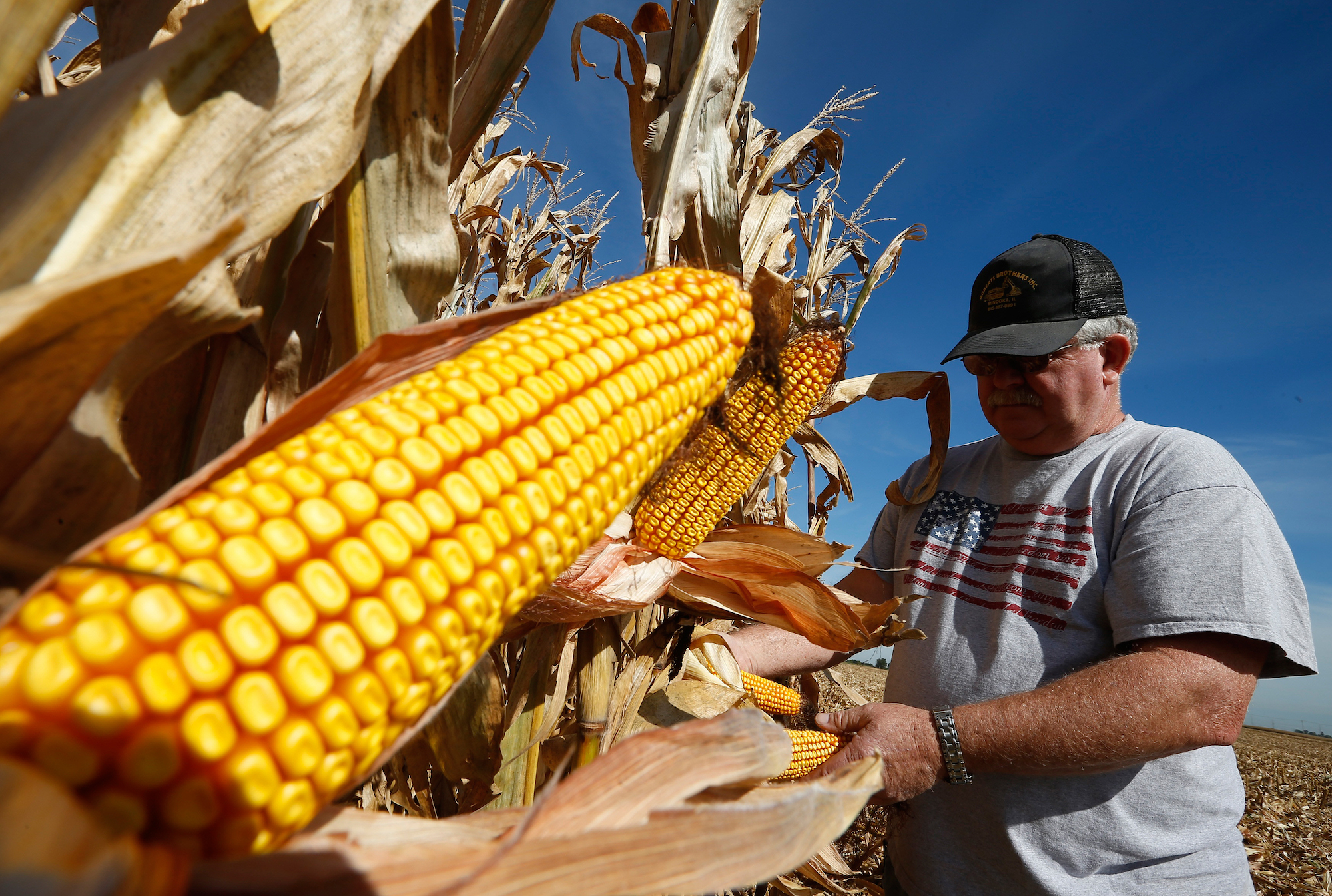- Bayer, a German pharmaceutical and chemical company, has won approval from the US Justice Department to buy agricultural giant Monsanto.
- But farmers are worried about what the consolidation might mean for prices and their future business.
- Whereas Bayer and Monsanto claim the move will spur innovation, other analysts have expressed skepticism.
A blockbuster deal between Bayer and Monsanto is moving ahead.
Under a proposed settlement filed on Tuesday, Bayer agreed to sell its seed and herbicide businesses to German chemical company BASF – a move the US Department of Justice required for the deal’s approval.
Bayer and Monsanto first announced the $60 billion deal in September 2016, saying the move would boost agriculture research and innovation.
“By the time 2050 rolls around, the world will have 10 billion people, and the demand for food will double,” Robb Fraley, Monsanto’s outgoing chief technology officer, told Business Insider last year. “The whole point here is that the business combination between Monsanto and Bayer will allow the companies to invest in and create more innovation, and it’s going to take a huge amount of innovation in order to double the world’s food supply.”
Farmers aren't so sure.
"From my perspective, they're saying the exact opposite of what most people in the industry actually believe," Clay Govier, a farmer in central Nebraska, told Business Insider in January 2017. Govier is the fifth generation to work on his family farm of 3,000 acres, which primarily grows corn and soybeans. The farm has used Monsanto products for at least 12 years, and Govier's family expects seed and chemical prices to increase due to the merger.
That could put many small family farms in tough positions.
"I just sat down to chat with my banker the other day, and fortunately we're in a position that I don't think we're going to have to have a hard conversation when it comes to loans for next year," Govier said. "But he said there are a lot of guys out there that are going to have a really hard conversation."
Consolidation on the rise
According to the US Department of Agriculture, farm production in the US has consistently shifted away from smaller farms, to larger ones. Whereas just 15% of all cropland was held by farms with at least 2,000 acres in 1987, that percentage had jumped to 36% by 2012.
With the increasing consolidation of the agriculture supply industry (Monsanto-Bayer is the biggest of three major mergers - preceded by Dow-DuPont and Syngenta-ChemChina), Govier doesn't expect things to get easier anytime soon.
"They're locking in their profit and they're cornering the market by getting bigger, not by creating new products," he said of Bayer and Monsanto. "They're just choking out the rest of the competition."
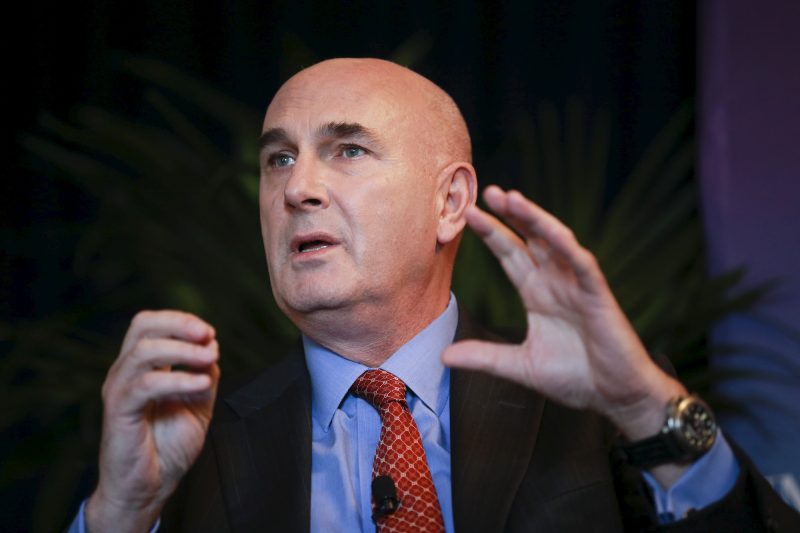
The size of the Bayer-Monsanto deal - it was the biggest merger announced in 2016 after AT&T and Time Warner - means the companies have to seek approval from regulators in 30 countries.
The deal has already gotten antitrust approval in the European Union. US approval was expected as well, given that the CEOs of Bayer and Monsanto, Werner Baumann and Hugh Grant, visited President Donald Trump before he took office and said in a statement that the three had a "very productive meeting" at Trump Tower.
Baumann and Grant suggested that Trump shared their view of the agriculture industry's need for innovation. To that end, the companies highlighted their plan to spend $16 billion on research and development worldwide over six years - an average of $2.67 billion a year.
But a look at their past R&D budgets reveals that, added up, the two companies already spent approximately $2.59 billion a year as of early 2017, so the combined increase in funds amounts to less than $500 million over six years.
"Let's just cut to the chase: These companies want to make more money, they want to raise prices," Mark Connelly, an agriculture analyst at the brokerage and investment group CLSA Americas, previously told Business Insider. "No company in this industry needs these deals in order to innovate."
Higher costs for farmers
Data compiled by the Farmers Business Network, a data-distribution network that collects crowd-sourced information from members, backs up Connelly's concern. FBN analyzed corn-seed yield (the number of bushels farmers can produce per acre) in relation to the seed brands' market share, based on data from 5.75 million acres of corn. It found that while greater market share was correlated with higher yield - a primary goal of agricultural innovation - the rise wasn't proportional.
"After you got to a few percent market share, it really tapered off quite quickly," FBN cofounder Charles Baron told Business Insider in 2017. "So going from 5 or 10% to 20 or 30% market share didn't lead to a massive yield increase."
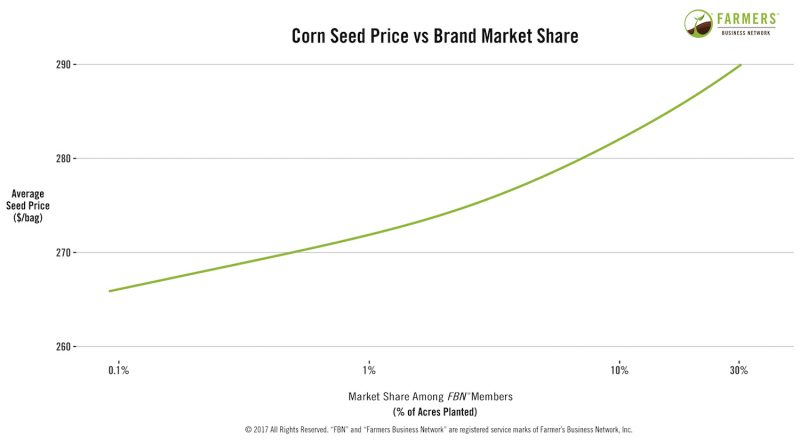
When plotting seed prices in relation to market share, FBN data also showed that greater market dominance was correlated with higher corn seed and chemical prices.
That doesn't bode well for farmers, since the newly consolidated agricultural companies already make up a significant portion of the market, according to Connelly's analysis.
"If you look at how much of the farmers' seed and pesticide dollars are going to these companies, Monsanto-Bayer - if it were one company today - would be getting $1 out of every $3," Connelly says. "Dow-Dupont would be taking one out of every $4. Think that's a problem? Holy crap, right?"
Such consolidation isn't the only headache for farmers under the Trump administration. Some farm owners who depend on immigrant workers have concerns about Trump's immigration policies, since they say they can't find enough American citizens to fill their staffs. Agriculture industry groups also strongly opposed Trump's trade restrictions on China, since the country is likely to retaliate with high tariffs of its own.
"We'll make it up to them," Trump reportedly said on Monday, according to Politico. "The farmers will be better off than they ever were."
Bayer and Monsanto's motivation to merge
Bayer representatives acknowledged in a 2017 statement to Business Insider that they were often confronted with the allegation that the merger would raise prices and reduce innovation and competition.
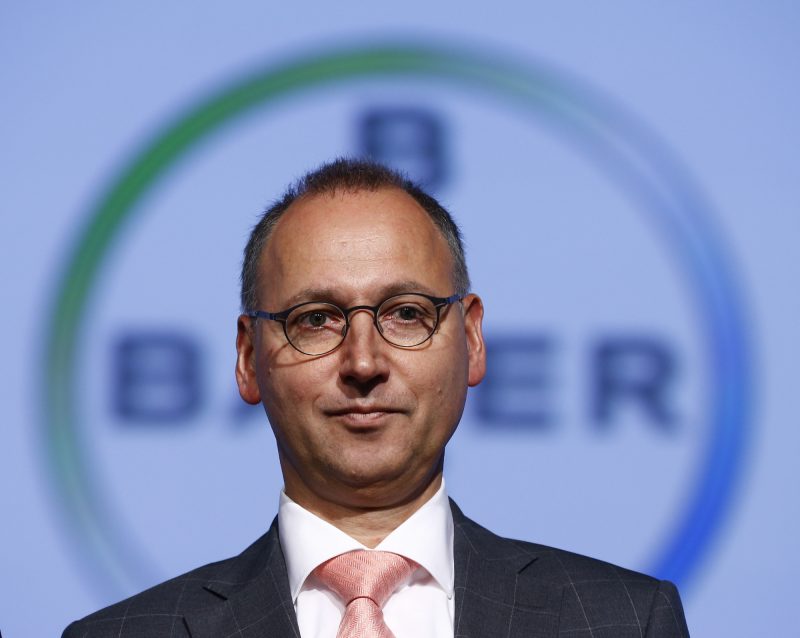
"We disagree with this and are convinced the opposite is true," the company wrote. "We are competing with other very strong companies that offer similar products and have strong R&D capabilities. We will only succeed with pricing and selling our products if our value proposition to our customers is better than that of our competitors and if we continue to innovate. We are also convinced that in a competitive business such as the agriculture industry, the efficiency gains generated by innovation will increase returns for farmers."
Monsanto's Fraley estimated that, under the current system, it takes about a decade for a company to develop and get approval for a new herbicide. Then if that product is popular, it'll take the company another 10 years to make a seed trait that responds to the new chemical. But since Bayer and Monsanto's combined resources might allow them to develop paired products in tandem, he said they could halve the time it takes to bring those new products to farmers.
Connelly has a different hypothesis. Monsanto has historically sought out partnerships and joint ventures with other companies that are developing innovative products. But that means dividing up profits. So Connelly predicts the size of a combined Monsanto-Bayer will lead the new company to favor a mediocre product or solution that it can develop in-house over a more promising one that would require a revenue-sharing partnership.
"We're not going to be chasing the best solution anymore - we're going to be chasing the good-enough solution," Connelly said.
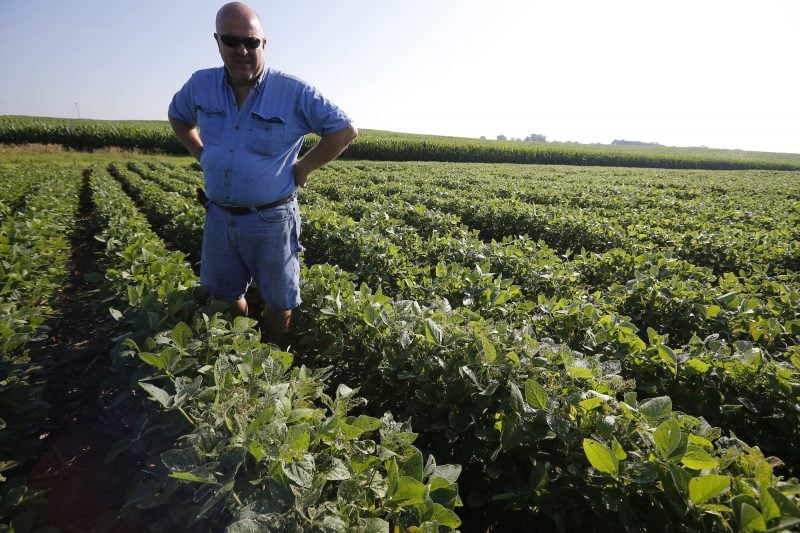
Todd Eney, a fourth-generation farmer in central Montana, previously told Business Insider that as suppliers of seeds and chemicals have become more consolidated, he hasn't seen many benefits.
"These corporate bigwigs, are they really going to do what they say?" he said. "Our farm has been out here since 1935, and I'm 40 years old and I've watched a lot of small family farms in our area go under. They can't compete because they can't pay the price of input because of what these companies are wanting to charge for input now."
Eney's farm grows wheat, malt barley, and field peas, and it uses Roundup, Monsanto's popular weed killer. Last year, he said, he and his father decided to use 50% less fertilizer to cut costs. The possibility of further consolidation has him on edge.
Clay Govier has a similar feeling.
"You know, it's almost like you shrug your shoulders and cross your fingers that your regulators are going to have a backbone and not let it happen," he said last year.
That scenario does not seem to be playing out as he'd hoped.
This is an updated version of a story originally published February 5, 2017. If you're a farmer or entrepreneur affected by this merger and would like to talk about its impact, please reach out to [email protected].

